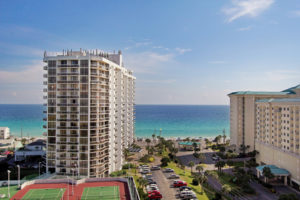Concern About Your Florida Condo’s Sprinkler System – New Law Interpretation

If you own a high-rise condo in Florida, you may have gotten a memo about the requirement for sprinkler system retrofitting in your building. Here is an update from the Community Association Leadership Lobby:
| The Fuss about Florida’s Fire Sprinkler Opt Out Deadline The Division of Florida Condominiums, Timeshares and Mobile Homes (“Division”) has recently been quoted in several media articles advising that all multifamily buildings in Florida, regardless of height, must install sprinklers unless they opt out prior to the December 31, 2016 deadline. In the aftermath of that revelation, some Florida attorneys are advising communities that they all must take an opt out vote prior to the December 31, 2016 deadline or they will be required to begin installing a full sprinkler system shortly thereafter. So what’s the problem? Why does the Division and those following their lead believe otherwise? In 2010 Chapters 718 and 719 were amended to remove the word “high rise” from the original “opt out law” which was enacted in 2003. That change occurred through SB 1222/SB 1196 which was sponsored by Rep. Ellyn Bogdanoff and Senator Jeremy Ring. It is likely that the Division believes that the removal of the reference to the “high rise buildings” signified a legislative intent to create a retrofitting requirement for all condominium and cooperative buildings through the condominium statute. As discussed above, that logic is not supported by the statutes or the NFPA standards. Moreover, Senator Ring has confirmed that the legislative intent behind the 2010 change was not to impose a blanket retrofitting requirement on all multifamily buildings in Florida but rather was to remove the reference to building height since the shared ownership statutes were not the proper place to impose physical requirements relative to life safety standards. What does this mean for your multifamily building? After Jan 1, 1994, all new buildings 3 stories and above had to have fire sprinklers. In addition, buildings of 3 stories or more that are treated as public lodging establishments, have life safety obligations which may include sprinkler installation. Other than those exceptions, if your building is not a high-rise of 75 feet or higher and you are confused about whether or not you should take a sprinkler opt out vote prior to the 12/31/16 deadline you need to discuss with your association attorney (who is hopefully experienced in these matters) whether or not your local government is requiring low and mid-rise buildings to retrofit with sprinklers due to a local code or ordinance and what the costs and repercussions of taking and not taking that opt out vote are. Are there any repercussions to taking or not taking this vote? For buildings other than high-rises, the failure to take the vote may have no repercussions at all if they are not otherwise required by a life safety statute or local ordinance or code to install sprinklers or it might have some preventative value should a local authority try to impose a sprinkler requirement on them. Your low and mid-rise building must weigh the costs and labor to take the vote against the preventative value or no value in doing so. It is also important to remember that once an opt out vote is taken that the association doing so must take the following steps: (1) Within 30 days after the associations opt-out vote, notice of the results of the opt-out vote must be mailed or hand delivered to all unit owners. Evidence of compliance with this notice requirement must be made by affidavit executed by the person providing the notice and filed among the official records of the association. (2) After notice of an opt out vote is provided to each owner, a copy must be provided by the current owner to a new owner before closing and by a unit owner to a renter before signing a lease. (3) As part of the information collected annually from condominiums, the division shall require condominium associations to report the membership vote and recording of a certificate under this subsection and, if retrofitting has been undertaken, the per-unit cost of such work. The division shall annually report to the Division of State Fire Marshal of the Department of Financial Services the number of condominiums that have elected to forego retrofitting. What is CALL and Becker & Poliakoff doing to address this issue? If you manage or serve on the board of a multifamily condominium or cooperative building in Florida which does not currently have a full sprinkler system and you have not yet taken an opt out vote, relying on media articles, newsletters and communications from attorneys who do not serve your community is not your best course of action. This CALL Alert is a good way to start a conversation about an important topic but an informed board must make that decision by relying upon its own advice of counsel. As always, if you have any questions about the contents of this CALL Alert, please don’t hesitate to contact your CALL Team. Very truly yours, Donna DiMaggio Berger, Shareholder
|
